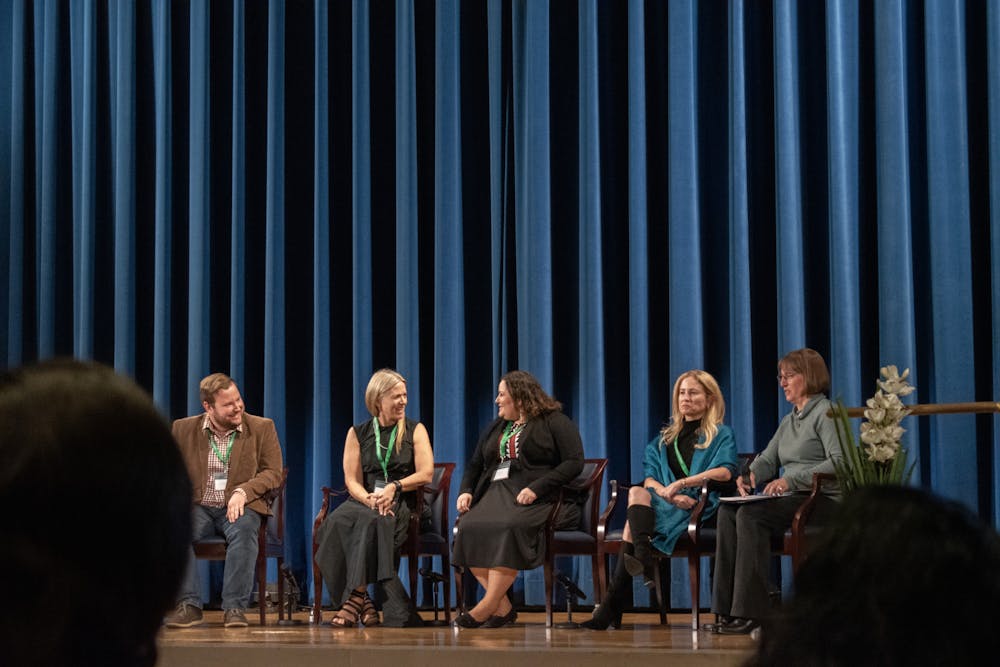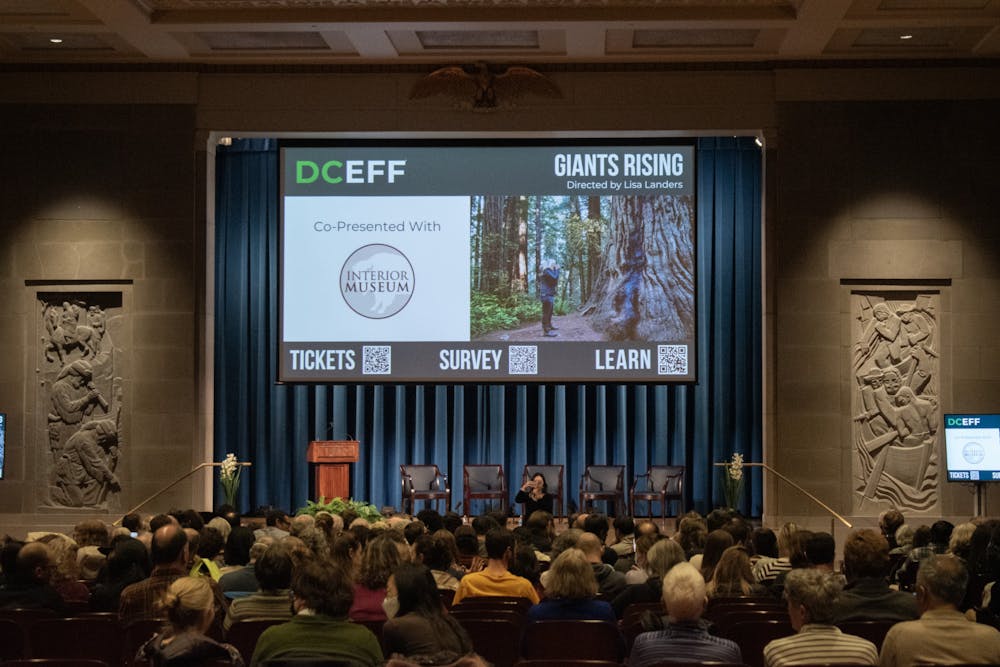Did you know that Greenland sharks can live up to 400 years old? Or that redwood trees can be albino?
D.C.’s annual Environmental Film Festival presented these facts, stories and plenty of love for the nature of planet Earth. The screenings were united by a plea for environmental action from both the public and global legislature.
The D.C. Environmental Film Festival was started in 1993 by Flo Stone, who previously worked for the American Museum of Natural History and has been a part of environmental film festivals across the world.
Every March since the festival’s inception, the DCEFF has brought documentaries about Earth’s natural places to the District. Their mission is “to advance understanding and stewardship of the environment through the power of film,” according to the festival website.
Films from previous years are available to watch on their Watch Now webpage.
“Ocean Seen From The Heart,” a documentary directed by Marie-Dominique Michaud, made its United States debut on March 28 at the French Embassy. Viewers got a short introduction to the film by Joaquim Nassar, the Attaché – a specialized staff member for a foreign ambassador – for Science and Technology at the French Embassy, before the lights dimmed.
The movie offered an educational and entertaining overview of the issues the ocean currently faces at multiple latitudes, including issues with overfishing in Alaska as well as shark health in tropical waters. Much like the sea itself, the documentary’s focus was broad and complex, focusing on interconnected problems across different oceanic ecosystems.
The film highlighted a breadth of issues like cleaning plastic from oceans, a Polynesian island community imposing fishing regulations to support reef ecosystems, the struggles of Indigenous communities and salmon overfishing and how new coral reefs are being created.
The documentary also called for the improvement of ocean fishing strategies and criminalization of ecocide, a human act of mass ecosystem destruction.
The film jumped around, not spending too long on any issue, instead giving audiences an overview of the threats the ocean faces. It seems to be created for those with limited understanding of these problems, but still has enough new details to keep those already familiar with the topic engaged.
Following the screening, Michaud took the stage to discuss the film and to answer questions from the audience. Michaud elaborated on what actions need to be taken in order to improve the ocean’s health.
“Industrial fishing really needs to end, and rapidly,” Michaud said. “Corporations have more rights than humans, than nature.”
“Giants Rising,” a film shown at the Department of the Interior Museum on March 29, was an in-depth profile of coastal redwood trees. The audience was brought to the misty hills of the Californian wilderness where they met geneticist Zane Moore, Yurok tribe leader Rosie Clayburn and artist Sara Bird.

The film tried to get audiences to imagine themselves at the base of a Redwood tree, and to feel the sense of wonder that the film’s subjects did. This was only made more interesting by the fact that the film showed various reasons to love the tree through the characters in the movie.
“Go out. Spend time with a tree, it doesn’t have to be a grand one,” Bird said. “Nature is not out there. We are nature, nature is us.”
Following the screening, a panel of the film's protagonists spoke with the audience. Each shared their unique connection with the trees and what they hope audiences will take away from the film.
“Some of the things that are going to improve the world and specifically our country and the environment we’re in and the crisis we are in, is rooted in Indigenous knowledge,” Clayburn said. “We really have to start to elevate those voices and support communities.”
On March 24 at the National Museum of the American Indian, attendees viewed “One with the Whale,” a triumphant documentary by Peter Chelkowski. The film highlights the importance of whaling as a matter of survival for Indigenous people on the island of St. Lawrence in the Bering Sea.
After Chris Agra Apassingok, a young member of an Alaskan village, harpooned a whale, his mother decided to share this accomplishment on Facebook. Without understanding the depth of his achievement, environmentalists such as Paul Watson attacked Apassingok online with verbal abuse and death threats.
The film explores the family's journey to reconcile with the ancient and modern world in the face of environmental concerns. Because the community relies heavily on subsistence hunting, the disappearance of ice and the erosion of beaches are major concerns.
Following a screening of the film, the event featured a conversation with Chelkowski and Chris’ father, Daniel Apassingok.
“It’s a really big moment I think,” Chelkowski said. “In terms of having the environmental movement and the Alaskan native and Indigenous communities come together.”
This article was edited by Sara Winick and Abigail Turner. Copy editing done by Luna Jinks and Sydney Kornmeyer.





